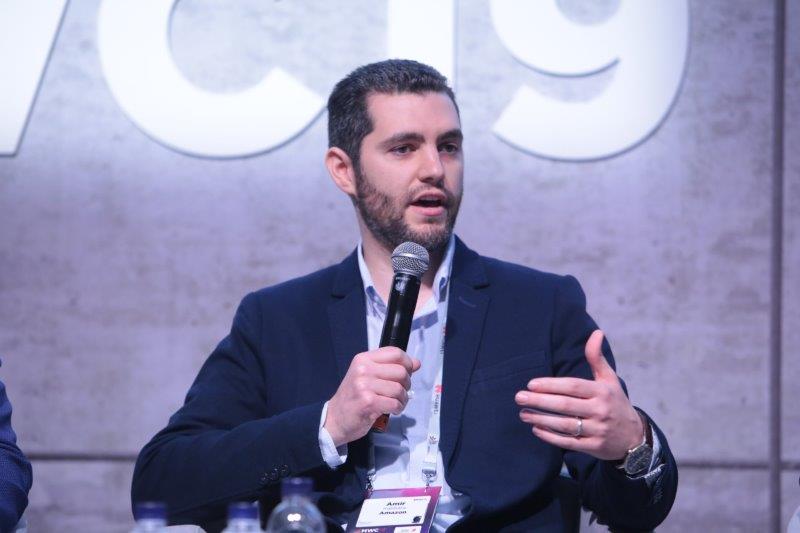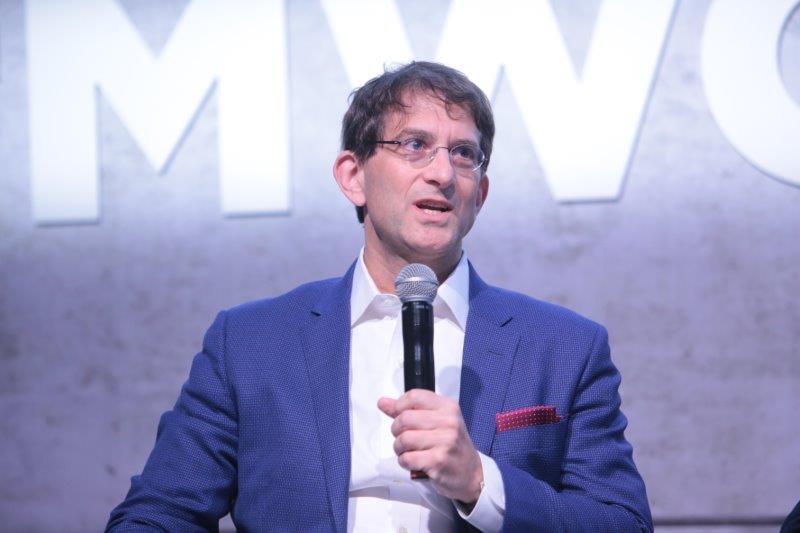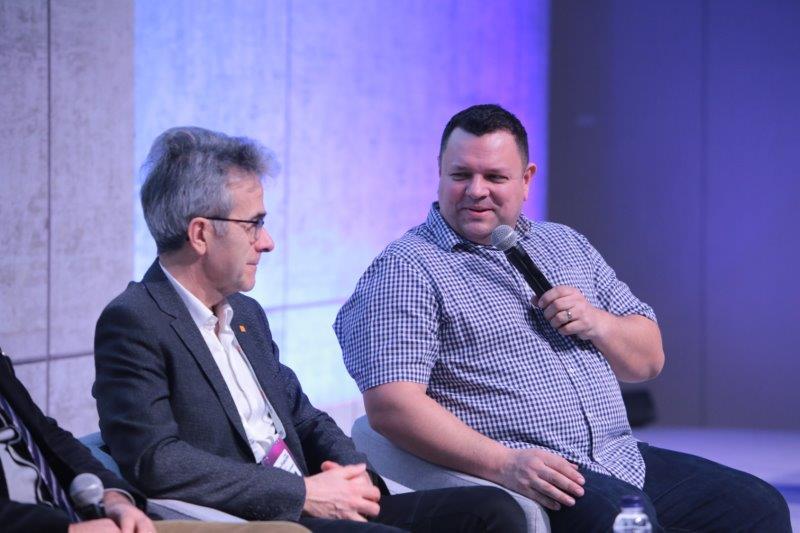Is the ten year dominance of the app model finally breaking apart? What new opportunities lie ahead for carriers, content makers and brands? At MCW19, an expert MEF panel in association with Syntonic dived in to this huge topic…
The era of the smartphone and super fast abundant data changed the way people consume content. Today, the mobile handset is truly a portable lifestyle hub.
Who wins in this scenario? Undoubtedly, it’s the OTTs. Google, Apple, Facebook et al are current gatekeepers of this rich content.
And the carriers that built the networks? They are struggling to find an active role.
Watch the Future of Business Models panel from MWC 2019 in full
However, new opportunities could be coming. The arrival of 5G will extend subscriptions beyond humans to millions of machines. Meanwhile, RCS rich messaging could (a very conditional ‘could’) provide an operator-centric complement to the app.
Can these fundamental shifts re-boot the power balance in mobile? The future is up for grabs. At MWC19, MEF convened five experts to consider what might happen next…
- Gary Greenbaum, CEO, Syntonic
- Amir Kabbarra, Head of Digital Marketing & Consumer Innovation, Amazon
- Damien Byrne, Business Development Director, Boku
- Pierre Francois Dubois, Vice President, Orange Technocentre
- Jack Rabah, Head of Strategic Partnerships, Wikimedia
Here are the main take aways…
Why are new models possible now?
Undoubtedly, the giant companies that built the world’s mobile networks have not participated in the app economy. Boku’s Damien Byrne believes the carriers missed out largely because of their inability to cooperate. Now, he thinks they are far more collegiate – and ready to capitalise.
He said: “In 2008… they didn’t want to share information. That’s changed. They’re working together better now, because of what’s happening with the OTTs. Hopefully we’ll see more of this. Carriers have been too scared, and missed out.”
Gary Greenbaum zeroed in on the big opportunities available to them. “We’re seeing three real disruptions: identity, commerce and RCS. They are balkanised today, but there’s a true opportunity for carriers to lead and to provide a consistent platform. It’s a very exciting time. The verdict is out, but there’s a path for success here.
Can telcos forge a new business model from digital identity?
A transactional digital sphere can only succeed when vendors and consumers trust each other. Pierre Francois Dubois believes telcos can facilitate that trust.
“Carriers are not in business of selling data like the OTT players,” he said. “We are in the business of simplifying and securing transactions, and helping people avoid fraud – with things like one time passwords by SMS. We can also help to simplify online processes such as autofilling forms or do location checks.”
Damien Byrne pickled up the theme. He said Boku is now investigating the identity opportunity. He outlined how payment intermediaries such as Boku can harness the same systems that move money to authenticate people for non-transactional purposes.
He added that the arrival of 5G could expand this opportunity hugely. “There are 7bn SIMs now, but there could be 30bn when 5G gets out there. Those M2M connections will need to be verified and authenticated as well. That could be a huge opportunity for carriers to stake a claim.”
Will engagement be more highly valued by advertisers than acquisition?
The current norm for digital advertising is built around clicks and sometimes customer acquisition. But Amazon’s Amir Kabbarra believes rewarding ‘engagement’ is a fairer approach.
He explained: “Content providers know the value they can derive when a user reaches a certain level of engagement. For example, a games company might know that when a player reaches level 12 they are likely to spend $30 inside a game. If you have an ad system that only pays when get these specific actions, it really changes the model.”
Can RCS introduce new business models to the market?
In an era of free messaging apps, people still value SMS because they see it as ‘premium’. When brands pay for A2P traffic, it minimises the amount of spam on the channel. Pierre Francois Dubois believes this will ultimately help RCS.
He said: “The migration of A2P to RCS will give brands the chance to be visible to their customers. There is a price to pay for that, otherwise you have thousands of notifications, and that kills the channel.” Dubois also mooted the idea of embedding payment inside RCS messages. And not just DCB payment either. “With PSD2 in Europe, there will be a chance for new players to get into that payment space,” he said.
Can direct carrier billing deliver on its promise?
Boku’s Damien Byrne was frank in his assessment of the challenge facing DCB. He outlined the two distinct opportunities available to the industry. “On the one side there’s Google and Apple, who want to have one price/one tax model. Then there’s everyone else, and they all want to do things differently. That lack of ubiquity is the problem. It’s hard to supercharge the area there.
“The other thing is the cost. If you’re a telco and you’re used to 60 per cent, 10 per cent is very tight. If you’re a merchant used to one to two percent, 10 per cent is high. Bigger volumes at lower margins is payment mantra. But it’s not how telcos work.”
Will ‘mobile first’ markets support new business model ideas?
Developing economies are among the most enthusiastic consumers of mobile content – even if they generally have lower rates of disposable income. Gary Greenbaum explained how these market conditions are powering innovative ideas around sponsored data.
“Our model works in all economies, but we do focus in regions where data can be expensive for end users,” he said. “In South Africa, for example, we are working with a utility company to reward customers who pay their bill on time using mobile data.”
Jack Rabah agreed that developing economies offer huge potential, yet demand a specific approach. “For Wikipedia we find the lack of relevant content can be a problem,” he said. “So we are working with mobile operators to create toolkits that people can use to create and search for content in their local language. And we can even share content via SMS and USSD on feature phones.”








